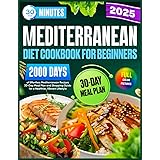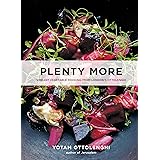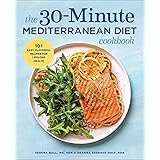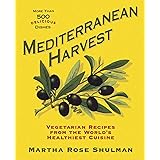The culinary traditions of the Mediterranean basin have long been celebrated, not just for their exquisite flavors but for their profound association with longevity and robust health. This connection is why the Mediterranean diet consistently garners top accolades, as highlighted in the video above, securing its position as the number one healthiest diet for seven consecutive years by U.S. News and World Report. Far from a restrictive regimen, this approach to eating represents a holistic lifestyle, deeply rooted in centuries of cultural practice and scientifically validated for its extensive benefits across various health parameters.
For those seeking to understand the empirical foundations behind its esteemed status, delving into the specifics reveals a meticulously balanced dietary pattern. Its unique composition actively supports cellular health, metabolic function, and cardiovascular resilience, making it a powerful paradigm for preventative health and sustainable well-being. Let us explore the core tenets and substantiated advantages that underscore the Mediterranean diet’s unparalleled efficacy.
Embracing the Mediterranean Eating Pattern: Beyond a “Diet”
One of the most crucial distinctions of the Mediterranean approach is that it is not a temporary “diet” in the conventional sense, characterized by strict rules and deprivation. Instead, it embodies a lifelong eating pattern, a cultural heritage passed down through generations. This understanding is key to its sustainability and success. People in the Mediterranean regions have instinctively eaten this way for millennia, integrating fresh, seasonal foods into their daily lives from birth until old age. This historical context provides compelling anecdotal evidence, now substantiated by rigorous scientific inquiry, that this dietary pattern is inherently conducive to human health and longevity.
The Mediterranean lifestyle extends beyond food choices, encompassing physical activity, social connection, and mindful eating. These elements collectively contribute to its comprehensive health benefits, fostering not just physical well-being but also mental and emotional resilience. This holistic view reinforces the idea that true health stems from a balanced integration of various lifestyle factors, with nutrition at its core.
A High-Fat Paradigm: The Dominance of Monounsaturated Fats
The notion that the Mediterranean diet is “high-fat” often surprises individuals accustomed to low-fat dietary recommendations, as the video rightly points out. However, this is a critical aspect, and the distinction lies in the *type* of fat consumed. The Mediterranean diet is indeed rich in fats, but predominantly from monounsaturated fatty acids (MUFAs), primarily sourced from extra virgin olive oil (EVOO).
Extra virgin olive oil, a cornerstone of this dietary pattern, is not merely a cooking medium but a functional food rich in bioactive compounds. Beyond its high MUFA content (specifically oleic acid), EVOO is packed with potent antioxidants, such as polyphenols and vitamin E. These compounds play a pivotal role in reducing oxidative stress and inflammation, two fundamental drivers of chronic disease. Research consistently demonstrates that a higher intake of MUFAs, particularly from EVOO, correlates with improved lipid profiles, reduced blood pressure, and enhanced endothelial function, all critical markers of cardiovascular health. For instance, studies like the PREDIMED trial have robustly linked a Mediterranean diet supplemented with EVOO to significant reductions in major cardiovascular events.
The Foundational Role of Plant-Based Foods
While the Mediterranean diet does include fish, poultry, and occasional red meat, its very essence is plant-based, a point well-articulated in the video. The vast majority of caloric intake and nutritional volume comes from an abundance of whole, unprocessed plant foods. This emphasis ensures a rich supply of fiber, vitamins, minerals, and a diverse array of phytochemicals essential for optimal bodily function.
- Vegetables and Fruits: Consumed in generous quantities at every meal, providing a wide spectrum of antioxidants, vitamins, and dietary fiber. Their high water content also contributes to satiety.
- Legumes: Beans, lentils, and chickpeas are staples, offering excellent sources of plant protein, complex carbohydrates, and soluble fiber, which is beneficial for gut health and blood sugar regulation.
- Nuts and Seeds: Regularly incorporated, these provide healthy fats, protein, fiber, and micronutrients like magnesium and zinc. They contribute to satiety and offer a crucial fatty acid profile, including some omega-3s.
- Whole Grains: Preferred over refined grains, whole grains like whole wheat, oats, barley, and brown rice deliver complex carbohydrates, B vitamins, and fiber, contributing to sustained energy release and improved digestive health.
The synergy among these plant foods creates a complex matrix of nutrients that work together to promote health. The high fiber content supports a healthy gut microbiome, which in turn influences immune function, mood, and nutrient absorption. The sheer volume of antioxidants from colorful fruits and vegetables provides robust protection against cellular damage.
Cardiovascular Health and the Mediterranean Diet
The Mediterranean diet’s reputation as the “best diet for your heart” is well-earned and extensively validated by epidemiological studies and clinical trials. Its cardioprotective effects are multifaceted, stemming from its characteristic nutrient profile:
- Healthy Fats: As mentioned, EVOO and nuts reduce LDL (“bad”) cholesterol while potentially increasing HDL (“good”) cholesterol, improving the overall lipid profile.
- Anti-inflammatory Properties: The high intake of antioxidants and omega-3 fatty acids (from fish and certain nuts/seeds) significantly reduces systemic inflammation, a key contributor to atherosclerosis and heart disease.
- Blood Pressure Regulation: The diet’s richness in potassium (from fruits and vegetables), magnesium (from nuts and greens), and lower sodium intake naturally supports healthy blood pressure levels.
- Improved Endothelial Function: The bioavailability of nitric oxide, critical for vascular dilation, is enhanced by the polyphenols found in EVOO and other plant foods, leading to better blood flow.
Major studies consistently show that adherence to a Mediterranean dietary pattern can reduce the risk of heart disease, stroke, and overall cardiovascular mortality by significant margins, often cited as a 30% reduction in major adverse cardiovascular events in high-risk individuals when compared to a low-fat diet.
Metabolic Benefits and Diabetes Prevention
Beyond its cardiovascular benefits, the Mediterranean diet is also an “amazing diet for reducing the risk of diabetes,” a crucial aspect in the global health landscape. Its impact on metabolic health is profound and directly addresses key factors in the development of type 2 diabetes:
- Glycemic Control: The abundance of fiber and complex carbohydrates from whole grains, legumes, and vegetables leads to a lower glycemic load. This prevents rapid spikes in blood sugar and insulin, promoting better insulin sensitivity.
- Inflammation Reduction: Chronic low-grade inflammation is a significant driver of insulin resistance. The anti-inflammatory compounds inherent in the Mediterranean diet help mitigate this, improving cellular response to insulin.
- Weight Management: As discussed below, the diet supports sustainable weight loss, and maintaining a healthy weight is one of the most effective strategies for preventing and managing type 2 diabetes.
Research indicates that individuals adopting a Mediterranean eating pattern exhibit a reduced incidence of type 2 diabetes, with some studies reporting up to a 50% lower risk compared to standard Western diets. This underscores its role not just in management but in primary prevention.
Sustainable Weight Management with the Mediterranean Lifestyle
For those seeking effective and permanent weight management, the Mediterranean diet stands out as one of the best approaches. Its success isn’t predicated on calorie restriction or exclusion of entire food groups, but rather on promoting satiety, nutrient density, and a positive relationship with food.
The diet’s high fiber content from plants, coupled with healthy fats from EVOO and nuts, contributes to prolonged feelings of fullness, naturally reducing overall calorie intake without conscious effort. Furthermore, the emphasis on whole, unprocessed foods eliminates the highly palatable, calorie-dense, and nutrient-poor processed foods that often drive overeating. The delightful flavors, derived from fresh ingredients, herbs, and spices, make the diet intrinsically enjoyable, which is a powerful factor in long-term adherence.
This approach fosters a mindful way of eating, encouraging enjoyment of meals in a social context rather than viewing food solely as fuel or a source of guilt. Such a positive psychological framework is vital for maintaining healthy eating habits and preventing the yo-yo dieting cycle commonly associated with restrictive diets.











